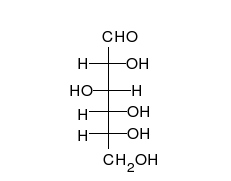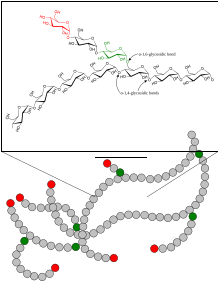Glycogen storage disease type IX Medical condition
Glycogen storage disease type IX is a hereditary deficiency of glycogen phosphorylase kinase B that affects the liver and skeletal muscle tissue. It is inherited in an X-linked or autosomal recessive manner.[ 1]
Signs and symptoms
The signs and symptoms in glycogen storage disease type IX include:[ 1]
Most of these signs and symptoms diminish as adulthood sets in.[ 1]
Genetics
Glycogen storage disease type IX can be inherited via:[ 2] [ 4]
Diagnosis
Histological study (Microscope with stained slide) The diagnosis of glycogen storage disease IX consists of the following:[ 1] [ 3]
Types
There are two types of this inherited condition, glycogen storage disease IXa1 and glycogen storage disease IXa2 that affect the liver of an individual.[ 6] PHKA2 have been seen in individuals with glycogen storage disease IXa2.[medical citation needed
Management
Glucose The management of Glycogen storage disease IX requires treatment of symptoms by frequent intake of complex carbohydrates and protein to combat the low blood sugar. A nutritionist will advise on suitable diets. Liver function is regularly monitored and problems managed as they arise. However, liver problems have only been successfully treated by a transplant . Routine checks of metabolism are needed to ensure blood sugar (glucose) and ketones are managed. Regular moderate exercise is beneficial, although over-vigorous exercise is to be avoided, especially in those with enlarged livers.[ 1] [ 7]
See also
References
^ a b c d e f g h Goldstein, Jennifer; Austin, Stephanie; Kishnani, Priya; Bali, Deeksha (1993). Pagon, Roberta A; Adam, Margaret P; Ardinger, Holly H; Wallace, Stephanie E; Amemiya, Ann; Bean, Lora JH; Bird, Thomas D; Fong, Chin-To; Mefford, Heather C (eds.). Phosphorylase Kinase Deficiency University of Washington . PMID 21634085 . ^ a b "Glycogen storage disease type IX" . Genetics Home Reference . Retrieved 2016-08-06 .^ a b Tidy, Colin (21 August 2014). "Glycogen Storage Disorders. GSD information and treatment" . Patient Platform. Retrieved 6 August 2016 . ^ "Glycogen storage disease due to phosphorylase kinase deficiency" . Orphanet . Retrieved 2016-08-06 .^ Bernstein, Laurie E; Rohr, Fran; Helm, Joanna R (2015-06-03). Nutrition Management of Inherited Metabolic Diseases: Lessons from Metabolic University ISBN 9783319146218 . Retrieved 6 August 2016 . ^ "Glycogen storage disease IX" . OMIM . Johns Hopkins University. Retrieved 2016-08-06 .^ Fernandes, John; Saudubray, Jean-Marie; van den Berghe, Georges (2013-03-14). Inborn Metabolic Diseases: Diagnosis and Treatment ISBN 9783662031476 . Retrieved 6 August 2016 .
Further reading
Johnson, Abiodun O.; Goldstein, Jennifer L.; Bali, Deeksha (July 2012). "Glycogen Storage Disease Type IX" . Journal of Pediatric Gastroenterology and Nutrition . 55 (1): 90– 92. doi :10.1097/MPG.0b013e31823276ea PMID 21857251 . Özen, Hasan (14 May 2007). "Glycogen storage diseases: New perspectives" . World Journal of Gastroenterology . 13 (18): 2541– 2553. doi :10.3748/wjg.v13.i18.2541 ISSN 1007-9327 . PMC 4146814 PMID 17552001 . Albash, Buthainah; Imtiaz, Faiqa; Al-Zaidan, Hamad; Al-Manea, Hadeel; Banemai, Mohammed; Allam, R.; Al-Suheel, Ali; Al-Owain, Mohammed (2014). "Novel PHKG2 mutation causing GSD IX with prominent liver disease: report of three cases and review of literature". European Journal of Pediatrics . 173 (5): 647– 653. doi :10.1007/s00431-013-2223-0 . ISSN 1432-1076 . PMID 24326380 . S2CID 37564174 . Tubbs, Raymond R.; Stoler, Mark H. (2009). Cell and tissue based molecular pathology ISBN 978-1437719482 . Retrieved 6 December 2017 .
External links
Classification External resources


